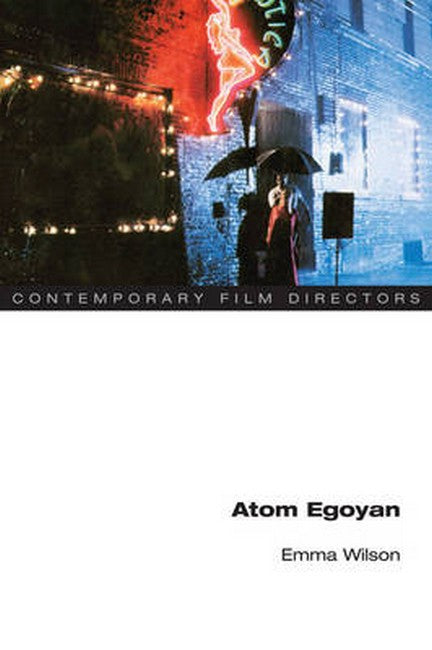''Wilson brings a fresh perspective to Egoyan's work, particularly insofar as gender and sexuality are concerned. Her analysis is elegant, and her writing is beautiful. Required reading for anyone interested in Atom Egoyan.'' Judith Mayne, author of Claire Denis ''Wilson writes with clarity and passion and often describes details from the films with such vivid expression that one is moved immediately to want to view or review the film being described (and this surely compensates for any sense of detachment experienced by the reader unfamiliar with his work). This persuasive book brings Egoyan's films vibrantly alive, while at the same time offering compelling, intelligent and thought-provoking analysis.'' Paul Sutton, Times Higher Education, 24th September 2009 ''The American-Canadian filmmaker Atom Egoyan, Emma Wilson claims, 'has refined representations of collective and personal loss in world cinema'', and it is these representations which serve as the focus of her discussion in this book ... Through her focus on loss and the rituals of mourning, Wilson unites the personal and national themes in Egoyan's work, tracing common concerns in The Sweet Hereafter (1996), in which a Canadian community mourns children killed in a bus accident, and Ararat (2002), which examines the historical tragedy of the Armenian genocide. She writes with particular sensitivity on films such as Calendar (1993) and Ararat in which interpersonal tensions express, in microcosm, the experience of the Armenian diaspora.'' - Alexander Jacoby ''Emma Wilson dedicates a separate section to each film and discusses themes of gender, sexuality, ritual and alienation within them, providing a comprehensive overview. Each film is analysed in similar detail, with Egoyan's best known film Exotica (1993) given similar consideration to an early film like Family Viewing (1987). The practice of interspersing the analysis with comments from Egoyan and excerpts from interviews with other authors is continued throughout, providing a reminder of Egoyan's status as one of ''the most exacting contemporary auteurs'' (12) and ensuring that the analysis stays close to the figure of the director. '' - Adam Jones, Scope, Issue 24, October 2012

